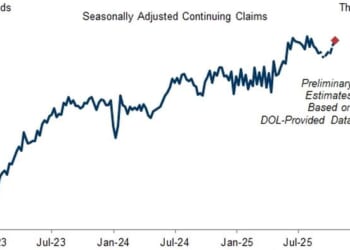Why are the French different from Americans? One reason, for good or ill, is that in their senior year in high school (called términale) French kids must take a course in philosophy. My daughter has just started reading the Pensées (Thoughts) of Pascal. My response to Pascal and his Pensées is given below in an essay I wrote for myself when I read it more than 35 years ago. But before that consider why I read this old book through the following dialogue from another, very different, French writer Marcel Proust; In the first volume of Remembrance of Things Past (in French À la recherche du temps perdue, In Search of Lost Time) , (translated by Moncrieff, Random House, v.1, p. 20).
“I say!” exclaimed Swann to my grandfather, “what I was going to tell you has more to do than you might think with what you were asking me just now, for in some respects there has been very little change. I came across a passage in Saint-Simon this morning which would have amused you. It is in the volume which covers his mission to Spain; not one of the best, little more in fact than a journal, but at least it is a journal wonderfully well written, which fairly distinguishes it from the devastating (sic) journalism that we feel bound to read these days, morning, noon and night.”
“I do not agree with you: there are some days when I find reading the papers very pleasant indeed!” my aunt Flora broke in, to show Swann that she had read the note about his Corot in the ‘Figaro.’
“Yes,” aunt Celine went one better. “When they write things about people whom we are interested.”
“I don’t deny it,” answered Swann in some bewilderment. “The fault I find with our journalism is that it forces us to take an interest in some fresh triviality or other every day, whereas only three or four books in a lifetime give us anything that is of real importance. Suppose that, every morning when we tore the wrapper off our paper with fevered hands, a transmutation were to take place, and we were to find inside it – oh! I don’t know; shall we say Pascal’s ‘Pensees?’”
Even more so today than in Proust’s time, it is important to find the signal in the noise. Get off your Twitter (I should write X) feed and read a great, old book.
On the Pensées of Pascal
“It might seem that about Blaise Pascal, and about the two works on which his fame is founded everything that there is to say had been said. . . . But Pascal is one who must be studied afresh by men in every generation. It is not he who changes, but we who change.”
T. S. Eliot
Upon reading these lines of Eliot, as is my habit, I studied afresh the Pensées of Pascal. The man who was to become one of the great Christian apologists of his age, or any age, I knew only as the man for whom a unit of pressure is named. Here I shall inform you of what little I have learned of his life and my feeling of the Pensées.
Blaise Pascal was born June 19, 1623 in Clermont-Ferrand, France. His mother having died as an infant, his father raised the boy and his sisters, personally undertaking the task of their education. Pascal was a precocious student. At sixteen he published a paper on solid geometry that Descartes could not believe was written by one so young. Pascal collaborated with his father on experiments that proved a vacuum was possible, which once again brought him into contention with Descartes. With these and other inventions and discoveries the great mathematician and physicist was known as the most brilliant man of his time. A celebrity himself, he knew all the best and brightest in Paris.
At the height of his renown on November 23, 1654 Pascal had a religious revelation. He recorded the event in a note that was sewn into the overcoat that he was wearing when he died. While he was always a Christian he came to feel that his religious attitude had not been fervent enough. He left the social life of Paris to join his sister in the Jansenist convent at Port-Royal. On his choice of faith over fame Pascal wrote:
“Vanity is so firmly anchored in man¹s heart that a soldier, a rough, a cook or a porter will boast and expect admirers, and even philosophers want them; those who write against them want to enjoy the prestige of having read them, and perhaps I who wrote this want the same thing, perhaps my readers.” . .
The Jansenists were a Catholic sect, who at that time were at odds with the Jesuits. Pascal wrote the Provincial Letters (1656-57) in defense of the Jansenist cause. This series of anonymous pamphlets is a masterpiece of French prose. Pascal lived his life in religious and scientific reflection until his death in 1662.
Pascal¹s Pensées (thoughts) were published posthumously in 1669. They are a compilation of notes intended for a Christian apology. Pascal intended to make the argument for Christian truths through reason. In spite of the fact that a Christian truth is that faith can not be deduced by reason. “Either God is or he is not.”
“But to which view shall we be inclined? Reason cannot decide this question. Infinite chaos separates us. At the far end of this infinite distance a coin is being spun which will come down heads or tails. How will you wager? Reason cannot make you choose either, reason cannot prove either wrong.”
Thus, Pascal argues, even if your reason prevents your faith, shouldn¹t
prudential reason move you to search for faith.
Pascal’s fundamental view of the world is of fallen man. That while
“man has god-like qualities he also displays the savageness of a beast. The two truths of the Christian religion are “that there is a God, of whom men are capable, and that there is a corruption in nature which makes them unworthy. It is of equal importance to men to know each of these points: and it is equally dangerous for man to know God without knowing his own wretchedness as to know his own wretchedness without knowing the Redeemer who can cure him. Knowing only one of these points leads either to the arrogance of the philosophers, who have known God but not their own wretchedness, or to the despair of the atheists, who know their own wretchedness without knowing their Redeemer.”
When man acts with the arrogance of a god to remake man or the world the results are disastrous. The French and Russian revolutions are testimonies to this truth. I can testify to the wretchedness of life in this world when God is not known with the example of my mother. Her life has no joy for as we all have failures, sickness and eventually death in our lives, she cannot see the light of the Redeemer which gives hope in the face of despair. Unfortunately I see no way to help her so I can only pray for her and grieve for her.
So what is it of Pascal that I have learned afresh, that I will keep with me for the rest of my days. In the words of Pascal:
“Thus I stretch out my arms to my saviour, who, after being foretold for four thousand years, came on earth to die and suffer for me at the time and the circumstances foretold. By his grace I peaceably await death, in the hope of being eternally united, and meanwhile I live joyfully, whether in the blessings which he is pleased to bestow on me or in the afflictions which he sends me for my own good and taught me how to endure by his example.”
Amen.












